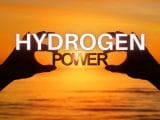
A hydrogen combustion future just “doesn’t seem feasible”, says Honda CEO
February 11, 2022Toshihiro Mibe said that he doesn’t see the potential in Toyota’s pursuit of the technology.
When Toshihiro Mibe, chief executive officer at Honda, recently spoke regarding proposals of cars powered by hydrogen combustion engines, he said the automaker looked into its potential about a decade ago but didn’t view it as feasible.
This opinion is a sharp opposite to rival automaker Toyota, which is pursuing the technology.
According to Mibe, while Toyota sees promise in hydrogen combustion technology, Honda doesn’t view it as feasible for cars. That said, the automaker’s opinion on that specific tech doesn’t mean that Honda is giving up on H2. H2 fuel cell vehicles remain a central component of the automaker’s zero-emissions strategy into he future.
Honda and Toyota are both globally recognized for their traditional gasoline-powered models but have also taken the spotlight for their efforts to power passenger vehicles. The majority of the auto industry, unlike these two Japanese companies, have focused on battery electric vehicles. Toyota in particular feels that hybrid models will remain competitive for another three decades, in addition to its H2 fuel cell electric vehicles (FCEVs), such as its Mirai. Honda has also moved forward with FCEVs with its Clarity Fuel Cell.

The Japanese government has supported Toyota with its FCEV and hydrogen combustion investments.
The Japanese government has supported automakers and other companies focusing on H2 in part because it is looking to that zero-emission fuel as a central part of its carbon neutrality goal for 2050. Though this tech has been broadly accepted for use in commercial vehicles and heavy machinery worldwide, battery electric vehicles (BEVs) are taking the top spot for consumer vehicles by a large margin.
This government support has given automakers in Japan an incentive to give H2 a second look. That said, Honda is keeping itself open to both technologies, keeping a close watch on consumer uptake. This is particularly true in the United States. Toyota has found itself placing its entire zero-emission spotlight on H2 options, working hard to slow BAV adoption. The company, nearly alone in investing into hydrogen combustion, has even gone so far to use propaganda in its home country to sway school children toward a future of hybrid tech.



 With over 15 years of reporting hydrogen news, we are your premier source for the latest updates and insights in hydrogen and renewable energy.
With over 15 years of reporting hydrogen news, we are your premier source for the latest updates and insights in hydrogen and renewable energy.
A major pollutant in major towns and cities around the world is the family of nitrogen oxides (NOx) which are harmful to our health and have been shown to cause death in some people. These NOx are produced when anything is burned in air, and hydrogen (H2) is no exception. Energy can be provided by the oxidation of H2 in air without the production of NOx through the use of a fuel cell where H2 is split into hydrogen ions that pass through a membrane to join with oxygen from the air and release electric power without the oxidation of the nitrogen. The release of energy by burning H2 in an internal combustion (IC) engine is less than 35% efficient when the release of energy from H2 with a fuel cell is at least 80% efficient, so powering a vehicle with a H2 fuel cell is not only more efficient than IC but also does not produce harmful NOx. For these reasons, it is unlikely that heating with a flame that consumes the oxygen from the air is unlikely to be permitted much beyond 2050.
Hydrogen is the most powerful fuel, kilo for kilo, in the universe, and can easily produce electricity when combined with oxygen (generally from the air) in a properly designed fuel cell. Unfortunately, combustion with air outside the fuel cell produces a flame that is so hot that it can not be seen by normal human eyes because only very high energy ultraviolet light is emitted. This allows jewelers working with platinum to easily fuse this extremely high melting point metal, but internal combustion engines would melt from the extreme heat. Launch vehicles use very expensive, very specialized engines that combine liquid hydrogen and liquid oxygen to produce the required thrust to escape gravity, but that’s not possible with auto engines, nor is it needed thanks to H2 fuel cells.
There are companies like mine that will make Hydrogen ubiquitous and as common as gas for icb engines. Settle down. My company will rise beyond the the oil and gas industry and begin the transition to a clean energy future that is here and now. Gold Coast Water Company produces green hydrogen as well as fresh water.